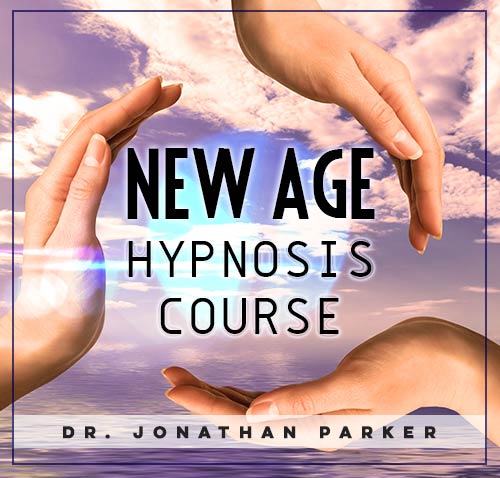Hypnosis and Mindfulness Practices

Hey there, amazing readers! 🖐️ Just a quick note: yes, we know there are a lot of ads here. Trust us, we get it—it’s not the prettiest look, but they help us keep this blog alive and kicking. Those pesky little ads cover the costs of all the behind-the-scenes magic, from hosting and tech stuff to creating content we hope you’ll love.
We’re committed to delivering quality posts, and your support (even just sticking around despite the ads) means everything to us. So, bear with us, and thanks for helping us keep the good vibes rolling. Now, on to the fun stuff! 😉
TRANSLATE BUTTON AT THE END OF THE ARTICLE
A Quick Overview
When it comes to exploring the realms of the mind and seeking more than just surface-level relaxation, hypnosis and mindfulness practices offer a fascinating journey towards understanding the complexities of our inner selves.
While often misconstrued and sometimes met with skepticism, these techniques have proven to be powerful tools in unlocking the secrets of the mind.
In this article, we will delve into the depths of hypnosis and mindfulness, exploring their histories, benefits, practical applications, and how they can be combined to enhance mental well-being.
Understanding Hypnosis and Mindfulness
Hypnosis, often portrayed in pop culture as a mysterious and almost magical practice, is actually a state of focused attention and heightened suggestibility.
It is a tool used to tap into the subconscious mind and create positive changes in behavior, thoughts, and emotions.
Conversely, mindfulness is the practice of being fully present and aware of one’s thoughts, feelings, sensations, and surroundings without judgment.
It involves tuning into the present moment and accepting it as it is, promoting inner peace and clarity.
The History of Hypnosis and Mindfulness
The history of hypnosis can be traced back to ancient civilizations, where healers and shamans used trance-like states to induce healing in individuals.
In the 18th century, Franz Mesmer developed the concept of "animal magnetism," which laid the foundation for modern hypnosis.
Mindfulness, on the other hand, has its roots in Buddhist meditation practices dating back thousands of years.
In recent decades, both hypnosis and mindfulness have gained popularity in Western psychology and medicine for their therapeutic benefits.
Benefits of Hypnosis and Mindfulness
Both hypnosis and mindfulness offer a wide range of benefits for mental health and well-being.
Some of the benefits include:
Stress reduction
Anxiety relief
Improved focus and concentration
Enhanced self-awareness
Better emotional regulation
Pain management
Increased resilience to challenges
How Hypnosis Works on the Mind
Hypnosis works by inducing a relaxed state of focused attention, allowing the hypnotist to make suggestions to the subconscious mind.
In this state, the critical faculty of the conscious mind is bypassed, making the individual more receptive to positive suggestions.
These suggestions are aimed at changing deeply ingrained beliefs and behaviors, helping individuals overcome obstacles and achieve their goals.
Mindfulness Techniques and Practices
Mindfulness can be cultivated through various techniques and practices, including:
Meditation
Deep breathing exercises
Body scan awareness
Mindful walking
Yoga
Mindful eating
These practices encourage individuals to become more present in their daily lives, fostering a sense of inner peace and contentment.
Combining Hypnosis and Mindfulness
Combining hypnosis and mindfulness can be a powerful approach to addressing mental health issues and personal growth.
By incorporating mindfulness techniques into hypnosis sessions, individuals can deepen their state of relaxation and enhance the effectiveness of suggestions.
This integration allows for a holistic approach to healing and transformation.
Common Misconceptions about Hypnosis
Misconceptions about hypnosis abound, with many people believing it is a form of mind control or manipulation.
In reality, hypnosis is a collaborative process between the hypnotist and the individual, where the individual retains full control and can reject any suggestions that go against their values or beliefs.
Hypnosis is a safe and natural state that can be used for self-improvement and empowerment.
The Science behind Mindfulness
Numerous scientific studies have validated the benefits of mindfulness on the brain and body.
MRI scans have shown that regular mindfulness practice can lead to structural changes in the brain, particularly in areas associated with emotion regulation and self-awareness.
Mindfulness has also been linked to reduced levels of stress hormones and improved immune function, highlighting its profound impact on overall health.
Practical Applications of Hypnosis
Hypnosis has been used in various practical applications, including:
Smoking cessation
Weight loss
Pain management
Phobia treatment
Improved sleep
Confidence building
Academic performance enhancement
These applications demonstrate the versatility and effectiveness of hypnosis in addressing a wide range of issues.
Cultivating Mindfulness in Daily Life
Integrating mindfulness into daily life can be a transformative practice.
By incorporating mindfulness into routine activities such as eating, walking, and even washing dishes, individuals can bring a sense of presence and awareness to their everyday experiences.
Mindfulness encourages individuals to slow down, appreciate the moment, and cultivate a deeper connection with themselves and the world around them.
Using Hypnosis for Mental Health
Hypnosis can be a valuable tool for improving mental health and well-being.
Whether used in conjunction with therapy or as a standalone intervention, hypnosis can help individuals overcome limiting beliefs, alleviate symptoms of anxiety and depression, and develop healthier coping mechanisms.
By tapping into the subconscious mind, hypnosis can facilitate lasting change and promote emotional resilience.
Incorporating Mindfulness into Therapy
Therapists often incorporate mindfulness techniques into their practice to help clients cultivate self-awareness, manage stress, and enhance emotional regulation.
Mindfulness-based therapies, such as Mindfulness-Based Stress Reduction (MBSR) and Mindfulness-Based Cognitive Therapy (MBCT), have been shown to be effective in treating a variety of mental health conditions, including depression, anxiety, and PTSD.
By integrating mindfulness into therapy, individuals can gain valuable tools for self-exploration and healing.
Conclusion
In conclusion, hypnosis and mindfulness practices offer unique and powerful approaches to enhancing mental well-being and promoting personal growth.
By understanding the history, benefits, and practical applications of these techniques, individuals can harness the power of their minds to overcome challenges, reduce stress, and cultivate a deeper sense of inner peace.
Whether used independently or in combination, hypnosis and mindfulness have the potential to unlock the secrets of the mind and empower individuals to lead happier, more fulfilling lives.

The Enlightenment Journey is a remarkable collection of writings authored by a distinguished group of experts in the fields of spirituality, new age, and esoteric knowledge.
This anthology features a diverse assembly of well-experienced authors who bring their profound insights and credible perspectives to the forefront.
Each contributor possesses a wealth of knowledge and wisdom, making them authorities in their respective domains.
Together, they offer readers a transformative journey into the realms of spiritual growth, self-discovery, and esoteric enlightenment.
The Enlightenment Journey is a testament to the collective expertise of these luminaries, providing readers with a rich tapestry of ideas and information to illuminate their spiritual path.
Our Diverse Expertise 🌟
While our primary focus is on spirituality and esotericism, we are equally passionate about exploring a wide range of other topics and niches 🌍📚. Our experienced team is dedicated to delivering high-quality, informative content across various subjects ✨.
To ensure we provide the most accurate and valuable insights, we collaborate with trusted experts in their respective domains 🧑🏫👩🏫. This allows us to offer well-rounded perspectives and knowledge to our readers.
Our blog originally focused on spirituality and metaphysics, but we’ve since expanded to cover a wide range of niches. Don’t worry—we continue to publish a lot of articles on spirituality! Frequently visit our blog to explore our diverse content and stay tuned for more insightful reads.






